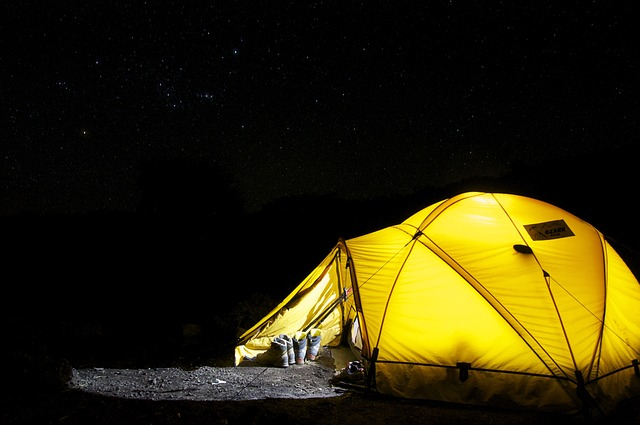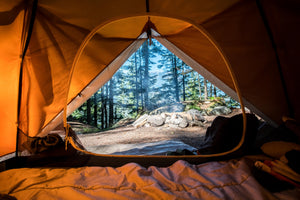What to bring when camping in a tent
Feb 28, 2023
Tent camping is exhilarating. Especially if you love the outdoors. But, what camping gear do you need in order to prepare for a memorable trip? Here's everything you must remember to pack. We have compiled a comprehensive list and we will continue to add things as we explore the camping packing list essentials for your next camping trip.
The Ultimate Camping Checklist
The items you will need for the trip will vary according to the area you are planning to go to. It will also depend on the type of adventure you are looking forward to having. The friends or companions you plan to take with you will also affect your planning. You should be mindful of area regulations as well, in order to be fully prepared. But, to get started, here's everything you need for tent camping in broad categories.
-
Shelter equipment (tent pegs, tent stakes, a camp, camp chairs or clean rugs for seating etc) Also, do check the weather forecast to know if you will need rain protection.
-
Cooking equipment and food supplies (Pots and pans are essential if you plan to cook, don't rely on hunting or fishing for the trip, having handy mac and cheese or ready meal supplies helps or have snacks onboard to keep you full)
-
Sleeping materials (Pillow, sleeping bag, inflatable mattress, warm bottles or other items to support a restful sleep.)
-
Drinking water (Other hydrating liquids or nourishing drink items, remember alcohol can be very dehydrating if you plan on relying on that as your primary source of liquid)
-
Clothing items (Footwear, swimming equipment, weather appropriate clothing layers)
-
Cooler or fridge (This may be a little extra for some people, but it does add luxury to an outdoor adventure especially when it is hot outside or you like your drinks chilled. You can also use the fridge to store meat cuts, cheese or frozen items)
-
Fire essentials (If your camp site allows fire)
-
Lighting equipment (A handy torch with extra batteries is essential. But, you can go on and add in extra items such as lamps or other lighting equipment.) Check out lights and much more you can utilise and count on - here.
-
Safety gear (A first aid kit, protection from cold weather and animal protection)
-
Disposal accessories (You should be mindful of having to use shared bathrooms or no bathrooms at all. Toilet paper is essential, so are rubbish bags, wipes and sanitizers.)
-
Furniture (It is a smart idea to have foldable camping chairs, they allow you to relax or prep dinner without having to squat or lay all the time. If you want to take it up a notch, especially if you have friends coming with you, you can pack a portable picnic table as well.)
These are just the basics, in broad categories. Some of the items in the list such as the need for a sleeping bag will multiply when you have friends coming along. Food, drinking water and the need for personal torches multiplies as well. But, some things such as a first aid kit or tools to fix your camp in place can be shared.
If you want to keep your trip light and as basic as possible then remember three categories: sleep, food and safety. You can carry a board or a large tray if no picnic table fits your bagpack, you can skip fancy cooking utensils with a multi-purpose pot. You can also skip a coffee mug and use glasses you want to use for other drinks. Don't compromise on the water or the sleep situation though. Sleeping bags are absolutely essential, especially if it is cold.
Furthermore, if you are worried about the camp toilets, be sure to carry your soap, water and towels. Make sure there is adequate food, if you do not want to carry too many cooking supplies a pot to boil water and heat some pre-cooked or instant meals will work. All the food will be used up by the end of your trip, don't worry about having too much food.
Safety comes from lighting, fire, emergency first aid supplies, predator prevention and bug reppellants. You should know which animals can attack your tent, for food or if you catch your attention. This risk is present at many campgrounds, so check yours before you go. You may need to hang your belongings on a high tree to protect it from the bears, you may need zippers to prevent monkeys from taking all your food, or may need to carry a knife only to be used in an extreme attack.
What do you put in a tent for camping?
You will need to put in a base layer to prevent dust or dirt from the ground to get into the camp. It will also prevent the camp from mildew and moss. You can add a top sleeping pad and then top it up further with a sleeping bag. Having a lamp inside the camp in case you want to get up at night is helpful too. You can place drinking water and a snack that is packaged inside as well. Especially if you do not want to wake up in the middle of the night and walk up to your vehicle or storage area to grab a bite. Having a jacket or fridge inside the camp if you have enough space is a good idea too. You can place an additional sheet for snuggling in before heading into the sleeping bag is a useful tip as well. Don't forget to pack a book or an activity that you would like to do such as take photos or view content in the tent.
What are the top 10 things you need for camping?
-
Sleeping bags, a sleeping pad, pillows and an arrangement to sit when not laying down.
-
A torch and/or fire with longlasting fire supplies or spare batteries. A headlamp is highly recommended for a late night walk or even a bathroom walk in the middle of the night.
-
Waterproofing/windproofing the tent, strong pegs to keep it in place and proper camp treatment to protect it from harsh weather.
-
Food and drink supplies, even if you want to skip the cooking you can't really skip the eating. Have snacks on board, keep some for your pet too if you plan to take it along. For cooking you can bring a small Jetboil burner or a full scale fire pit if you are in the mood for something fancy. Having a fridge or a cooler is a great resource too.
-
Toilet paper, wipes and bin bags to carry the waste. You should aim for sustainable travels and limit your impact on the environment, thereby protecting the land. Don't leave the trash out there, be responsible and carry it yourself.
-
Camp setting gear, tools and a sheet to lay under the tent to protect it from dirt etc. You can skip the sheet but only if you like to wash and clean your tent later. Or try exploring these options - Alto Bigfoot, Telos Bigfoot, if you like a clean place to stay in.
-
Potentially usable items such as knives, a lighter, safety pins, duct tape, spare pegs, utensils, spare torch, sun hat, a dust pan, biodegradable soap, bottle opener, spare jacket or a sheet to build an additional shelter.
-
Tea towels and utensil cleaning equipment is essential. Especially if you do not want to reuse the same pan for each meal without rinsing or carry it after the camping is done while it is still dirty in your bag pack.
-
Camping chair (so essential) or a sleeping mat (multi-purpose) to lay/sit on.
-
Shower supplies or spare clothes if you plan to swim.
What should you not keep in a tent?
Do not keep an untamed pet inside the tent if you doubt it will scratch and tear the tent. You should not have open flames in a tent either. Check whether you can use your tent as a hot tent and make sure to keep alcohol away from the heat source if so. You should also try and keep your shoes out of the tent, because that can create a problem for you to clean up later especially if you plan to conserve water.
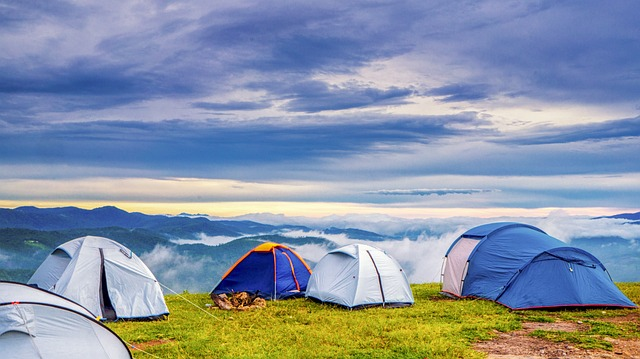
Kitchen Gear for Camping, The Campsite and Sleeping Gear
You should know the rules. National parks are usually protected by laws that help maintain the ecosystem there. Know if you are actually allowed to cook, which kitchen gear you are allowed to take, for example there may be limitations on propane, wood or charcoal, there may be restrictions on open fire or hunting as well. So know what you can and can not do before packing. Having cutlery on board is essential too, unless you are just planning to eat sandwhiches.
Also, depending on the region you want to go to the sleeping gear will vary. You may need bug protection such as mosquito nets in more tropical and subtropical areas. In some areas you may need animal repellant sprays to keep predators away. It is all in the name for a relaxing overnight sleep, so make sure to keep some predator/pest protection at hand if you want some rest.
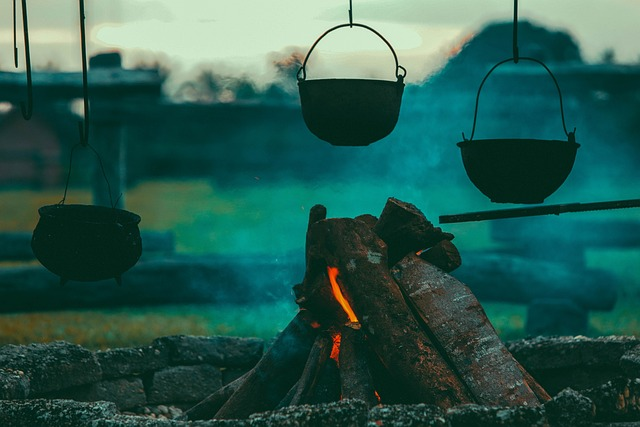
Camping Clothing and Footwear
Carry a windbreaker, period. Even in hot weather the outsides can be particularly cold and windy during the night. Especially if your trip is going to be at higher altitudes. So plan according to the weather and altitude. If you are planning on swimming in a lake or ocean nearby pack the essentials for that too. Carrying a spare outfit is a good idea too just like having a spare jacket onboard to keep you warm in case it gets cold.
Flipflops or beach sandals work, but if campgrounds or the national parks you plan to visit are marshy pack waterproof shoes or you will end up with mud everywhere. Closed shoes also help with keeping the bugs away.
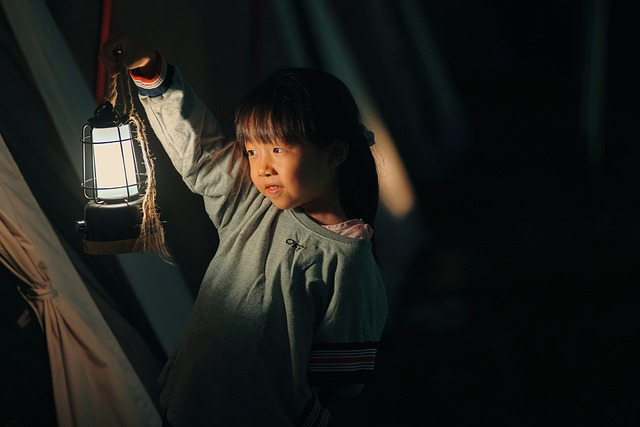
Camp Kitchen and Cooking
It can be baffling to choose your camp kitchen or cooking supplies. Just remember you will need to have something to cook on so a portable stove or a mini gas burner (with a spare propane tank) can work. You will need a pot or pan to cook the material on. A spork or a serving dish to eat out of will be required. You can eat out of the pan but, you will have to wait for it to cool down then. Don't depend on a fire to cook, because a lot of things can go wrong and you do not want to end up starving on a trip that you want to remember. Carry cooking and cleaning water both.
Check in advance whether your campsite offers cleaning running water, or if you will need to carry it. A lighter and wood or charcoal for burning also fall in the category of absolute camping essentials. Especially if it is going to be cold and you do not want to stay in ten layers of clothes.
Esky or Portable Fridge
Portable fridges are a delight. In the hot weather they help in keeping the tempratures down. In cold weather they make hot food more enjoyable by complimenting their temprature. You can carry a smaller fridge especially if you are taking friends or family away for the weekend. We recommend bringing extra drinking water and instant drinks as well to add to the variety of things you can have. A lot of times you can carry protein and ready made food in fridges, it can keep the food fresher for longer periods of time.
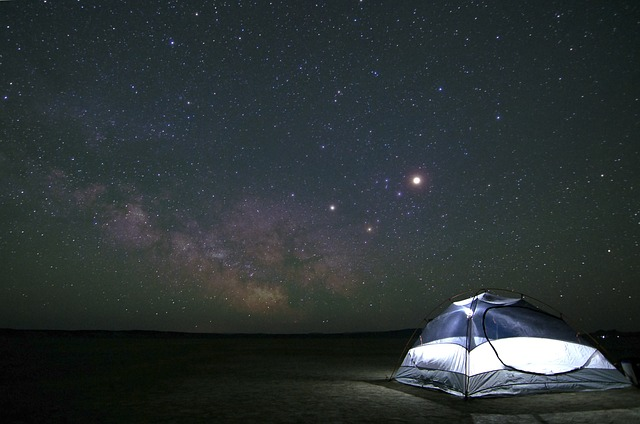
Sleeping in a tent
Sleeping in a tent is comfortable as long as you know it can withstand hard weather conditions. The concept of hot tent camping is becoming more and more popular. But, if you plan to do it be sure to learn about the safety precautions and camp regulations. You should protect every camp from potential rainfall and mildew. This is easy with waterproofing. Building a shelter on top of the tent is also recommended if you are expecting rain. Ideally you should have a sleeping bag, a foam to use under the sleeping bag, a pillow and a sheet incase you get too hot inside the sleeping bag. You can pack less if you like but, that is not recommended for your first few camping adventures.
Happy camping!
